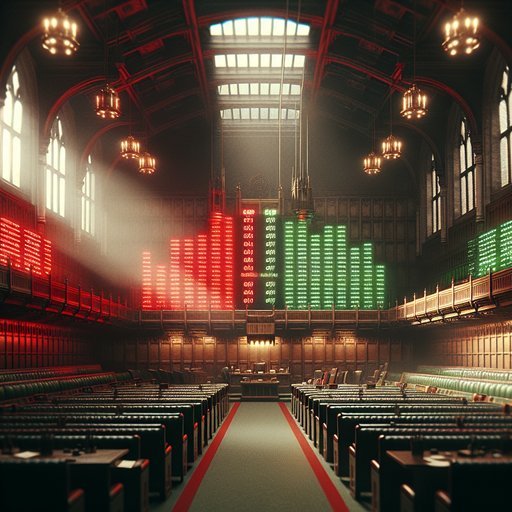
As the U.S. edges closer to a potential government shutdown, President Donald Trump’s ambitious tax and budget proposal faces increasing scrutiny and opposition within Congress. The bill, which promises sweeping tax cuts and economic reform, comes with a hefty price tag, leading to fierce debates on its long-term implications [2]. Critics fear that the bill's passage could significantly increase the national deficit, triggering widespread economic repercussions [6]. With amplified partisan divides, the stage is set for a contentious battle over fiscal priorities.
The Congressional Budget Office (CBO) recently released a report estimating that Trump's proposed tax and budget bill would increase the national deficit by $2.8 trillion over the next decade [1]. This figure, compounded by projections of economic impacts, has become a focal point for both proponents and critics of the legislation. Proponents argue it is necessary to stimulate economic growth, yet others worry it could worsen financial stability, potentially leading to severe economic consequences [2]. Amidst these fiscal concerns, the social implications of the budget bill have come under fire.
Significant cuts to federal food aid programs threaten to strain local resources, such as Bay Area food banks, alarming those dependent on such services [3]. Additionally, changes to Medicaid proposed within the bill risk leaving vulnerable populations without essential healthcare support [4]. These changes have prompted considerable pushback from advocacy groups, who argue that the legislation would exacerbate existing social inequities [5]. Within the political arena, Senate Majority Leader John Thune has dismissed critical reports on the bill, claiming they underestimate the potential economic benefits [6].
However, his comments have done little to quell bipartisan concerns about the bill's ramifications. Recent polls indicate nearly two-thirds of the public opposes the legislation, reflecting widespread unease about its perceived favoritism towards wealthy interests over average citizens [7]. This public skepticism poses a significant hurdle for Senate Republicans aiming to secure its passage [8]. As negotiations continue, the threat of a government shutdown looms, compounding the urgency of reaching a consensus.
The Republican leadership, under pressure from both moderate and hardline factions, faces the daunting task of reconciling diverging priorities within the party. The outcome of these negotiations is poised to have profound implications, not only for fiscal policy but for broader societal structures as well [9]. In the coming days, the direction of U.S. economic policy hangs in a precarious balance.
Sources
- Trump tax bill would widen deficits by $2.8T after factoring in economic impacts, CBO says (WJXT News4JAX, 2025-06-18)
- Trump’s Disastrous Budget Bill Is Even More Expensive Than We Thought (The New Republic, 2025-06-17)
- Food Stamps at Risk in Trump Budget Bill, Bay Area Food Banks Warn (KQED, 2025-06-17)
- Senate Republicans propose Medicaid changes in Trump budget bill (CBS News, 2025-06-17)
- The Number of Unhoused Young Children Is at Crisis Level. It’s Set to Get Worse. (Truthout, 2025-06-17)
- Thune Lies About GOP Budget Bill Like The Pro He Is (Crooksandliars.com, 2025-06-18)
- GOP budget bill faces nearly 2-to-1 opposition with many unaware: Poll - The Washington Post (Slashdot.org, 2025-06-17)
- 45 Groups Urge Senate Republican Leadership to Follow the Rules on Budget Bill (Common Dreams, 2025-06-17)
- CNN Data Guru Warns Republicans of ‘Big Beautiful Election Night’ For Dems If They Pass Trump’s Budget Bill (Mediaite, 2025-06-17)
























